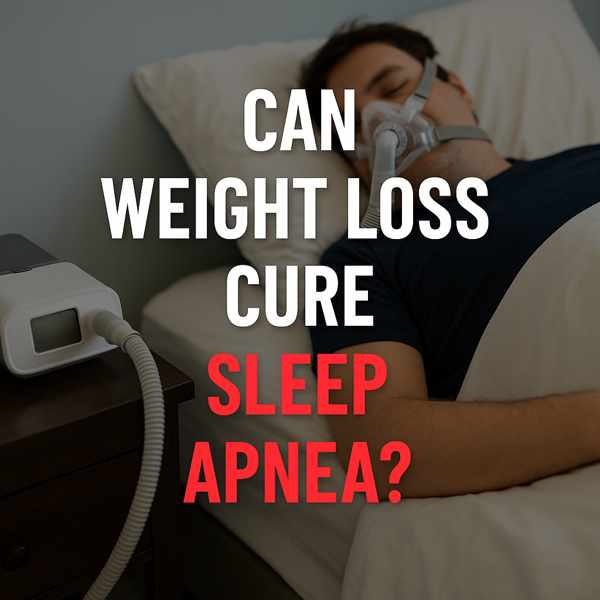Is Weight Loss the Key to Treating Sleep Apnea?

One of the most discussed connections to sleep apnea is excess weight — leading many to ask: can weight loss cure sleep apnea?
Let’s explore how shedding pounds can affect this sleep condition.
Understanding Sleep Apnea
Sleep apnea occurs when breathing repeatedly stops and starts during sleep.
Common symptoms include:
- Often reported by sleep partners
- Choking or gasping during sleep
- Excessive daytime tiredness
- Signs of disrupted oxygen flow
Why Excess Fat Matters
Carrying extra weight, especially around the neck and upper body, can put pressure on the airway during sleep.
Key risk factors include:
- More weight increases OSA risk
- Narrows the airway path
- Can contribute to airway collapse
Does Losing Weight Help OSA?
Especially in individuals with mild to moderate OSA, lifestyle changes can be very effective.
Possible benefits of weight loss:
- Less airway obstruction
- Better oxygen flow
- More natural treatment options
- Feel more rested and alert
However, weight loss may not cure sleep apnea in all cases — especially if anatomical issues or severe OSA are present.
How Much Weight Loss Is Needed?
Even modest weight loss can more info have a big impact.
Tips:
- Focus on progress, not perfection
- Sustainable changes make a difference
- Notice snoring, energy, and daytime fatigue improvements
Natural Weight Loss Tips for Better Sleep
Effective strategies:
- Limit sugar and processed carbs
- Boosts metabolism and burns fat
- Sleep on your side
- Avoid alcohol and sedatives
Working with a nutritionist or sleep specialist can provide more personalized support.
When Weight Loss Isn't Enough
While weight loss is helpful, it may not fully resolve sleep apnea for everyone.
- CPAP therapy (Continuous Positive Airway Pressure)
- Oral appliances
- Surgery in severe cases
Is Weight Loss the Answer?
For those whose apnea is linked to weight, shedding pounds is often a powerful, non-invasive solution.
Still, sleep apnea is a medical condition that may require combined treatments.